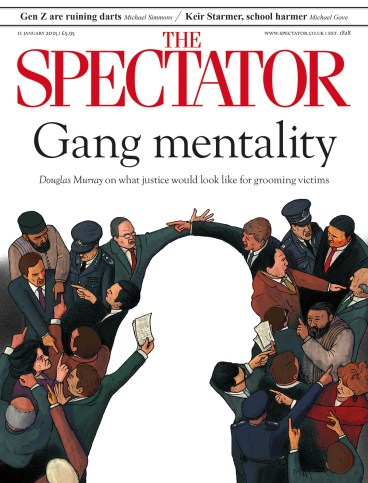
Catherine Lafferty has narrated this article for you to listen to.
How did the depraved cruelty of Britain’s grooming gangs go on for so long, so openly and with such seeming impunity? One overlooked but vitally important element of the scandal is that over the past 30 years the lines of defence girls had against sex crimes were deliberately taken down in the drive to reduce the country’s number of teenage pregnancies.
Britain’s stubbornly high teenage pregnancy rate was the stuff of dozens of newspaper columns
The first and most important line of defence any girl will have against male predation is usually her own family. The first step in dismantling these defences came in 1985 when Victoria Gillick, a Catholic housewife, wanted assurances from her local health authority that her underage daughters would not be given contraceptives without her knowledge and consent. She lost the case and consequently the Law Lords, led by Lord Fraser, set new guidelines under which underage sex would be officially tolerated as long as pregnancies were prevented.
The Fraser guidelines were hailed by the teen sex lobby, which claimed they would usher in a world of empowered young women and falling teenage pregnancy rates. But things didn’t go according to their confident forecasts and by 1997 Britain’s stubbornly high teenage pregnancy rate was the stuff of dozens of newspaper columns and radio phone-ins.
What to do next was obvious: intensify the policy. The incoming Blair government gave itself a ten-year strategy to halve teen pregnancy rates. There were taskforces, advisory groups, interim targets, targets, annual reports, workshops and drop-in centres.
Confidentiality was central to the teenage pregnancy strategy. Yet secrecy is also an abuser’s most effective cloak. A court case in the mid-2000s expanded the boundaries of teenage sex confidentiality even further. Like Gillick, it was brought by another mother called Sue Axon, who fought a legal battle for parents to have the right to know if their underage daughters were being given abortion advice.

Magazine articles are subscriber-only. Keep reading for just £1 a month
SUBSCRIBE TODAY- Free delivery of the magazine
- Unlimited website and app access
- Subscriber-only newsletters






Comments
Join the debate for just $5 for 3 months
Be part of the conversation with other Spectator readers by getting your first three months for $5.
UNLOCK ACCESS Just $5 for 3 monthsAlready a subscriber? Log in